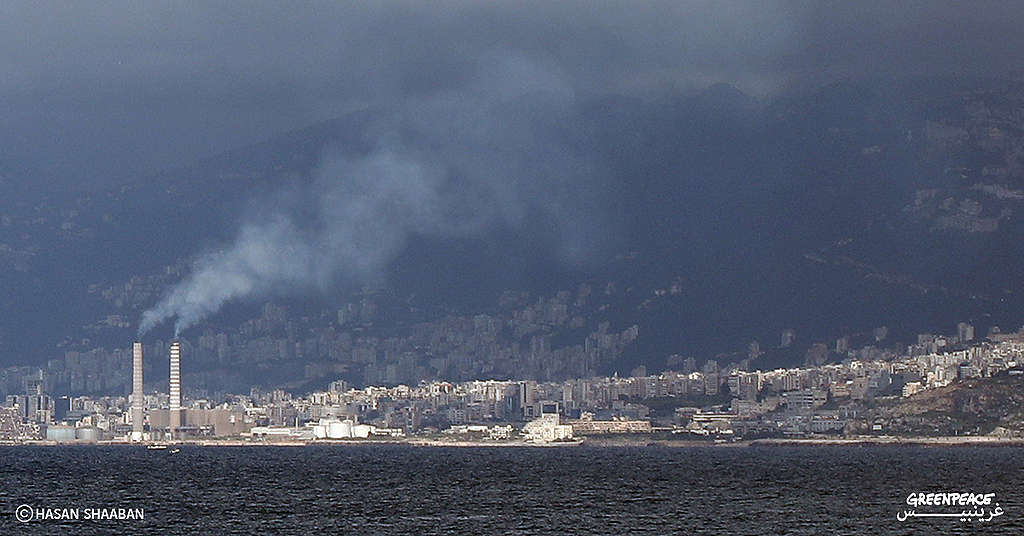February 8, 2021

Following reports indicating that Lebanon has reached an agreement to import Iraqi crude oil, The Programme director of Greenpeace MENA Julien Jreissati commented: “Iraqi oil has a high sulfur content and using it for power generation will worsen the air pollution in Lebanon that has already reached an alarming level”.
Greenpeace has released a global report in June last year entitled Toxic Air: The Price of Fossil Fuels
which revealed that the estimated average number of premature deaths in Lebanon as a result of fossil fuel induced air pollution was 2,700 in 2018 and the annual cost reaches USD 1.4 billion.
Burning high sulfur fuel oil will emit considerable amounts of sulfur dioxide, a colourless poisonous air pollutant that increases the risk of critical health conditions including stroke, heart disease, asthma, lung cancer and premature death.
Jreissati continued: “we urge the minister of energy, Raymond Ghajar, to show some mercy to our lungs that are already struggling with years of chronic air pollution and with the current coronavirus pandemic”.
He concluded: “instead of acting irresponsibly with short vision panic buy, the minister of energy should focus his effort on working towards achieving the Lebanese government’s official target of 30% renewable energy by 2030”.It must be noted that Greenpeace had published a report in July, 2019, entitled “No More Excuses: Time to go Renewable” which shows that by investing more on renewable energy and by scaling down planned natural gas thermal power plants capacity, the government will save money in addition to saving lives and tackling pollution problems.
